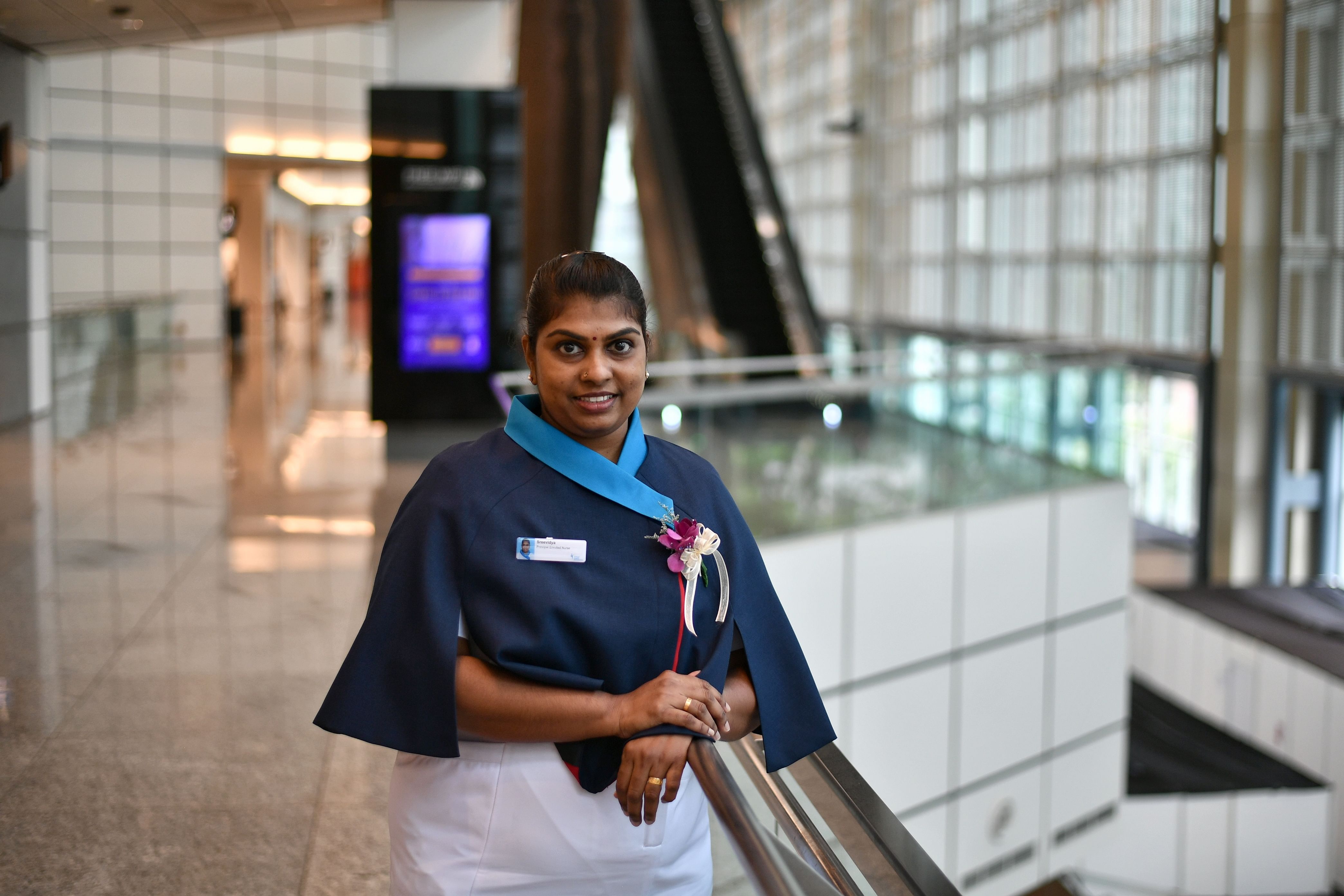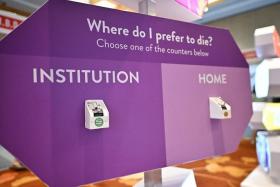Singapore riding current Covid-19 wave without heightened measures: Ong Ye Kung
Although Singapore is dealing with a wave of Covid-19 infections, it has not introduced heightened measures for the first time despite a spike in cases.
This means healthcare workers have primarily shouldered the burden, Health Minister Ong Ye Kung said on Wednesday (July 6) as he recognised and thanked the efforts of nurses at the Nurses' Merit Award event held at Suntec.
"The only thing that we have implemented is for you to wear your masks indoors...we are still vaccinating but our coverage is already very high," said Mr Ong.
He stressed that this current wave is an important juncture in Singapore's journey towards living with Covid-19.
"In this Omicron wave, by and large the burden falls on our hospitals, nurses and our medical personnel.
"I hope we all remember who is carrying that burden as the rest of Singapore go about their lives normally," Mr Ong said.
"I believe there are good reasons, looking at the numbers, that the trajectory of the wave has almost peaked or is at its peak. I really hope from here, things will get better."
Mr Ong presented a total of 125 nurses with the Nurses' Merit Award.
It is given to nurses who displayed noteworthy and exceptional performance, participated in professional development, and contributed to raising the nursing profession.
Winners were given a medal to be worn as part of the nurse's uniform and $1,000 in cash.
Principal nurse Sreevidya Jayacopalan, 37, was among the recipients.
The mother of three, who clocks nine hours of shift work a day, often returns home to her young children sleeping.
But she still did not hesitate to volunteer and join a medical team which worked at a migrant worker facility, where she learnt to perform swab tests at the height of the pandemic.

Principal nurse Sreevidya Jayacopalan from Khoo Teck Puat Hospital. ST PHOTO: ARIFFIN JAMAR
Ms Sreevidya, who works in the Acutely Mental Infirmed Elders ward at Khoo Teck Puat Hospital, looks after elderly patients with dementia.
When visitors were not allowed at the hospital, she set up video-conferencing sessions for the families and patients, including those who felt insecure and lonely.
"My mum, who is my backbone, and my husband would help pick up the kids from school and also update me on how they are doing so that I can have a peace of mind while working," said the mother of three children, aged eight, 10 and 12.
She added that her 44-year-old husband, who works as a technician, has also been understanding about her work. He would often change his work schedule to accommodate hers.
On weekends and days-off, Ms Sreevidya would spend time cooking and baking with her family.
But there were times during the pandemic when she felt burnt out due to the shortage of nurses in the ward.
When some foreign nurses returned home and others were infected by Covid-19, the ward often had only two nursing staff to handle about 11 patients.
In his speech, Mr Ong noted the sacrifices the nurses have made.
"Nurses also bring something else that may not be so easily discernible, much less measured. Yet it is essential and irreplaceable - and that is human compassion."
"Not everyone can be a shoulder to cry on when a loved one is in distress or lost. Not everyone can bring peace to a patient or loved one in time of anxiety.
"Not everyone can make a patient smile even at his lowest moments, or look into the future with optimism as he regains his strength.
"In a crisis as isolating as Covid-19, the human compassion of nurses is empowering, comforting and invaluable," Mr Ong added.
Get The New Paper on your phone with the free TNP app. Download from the Apple App Store or Google Play Store now



